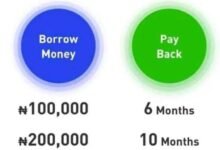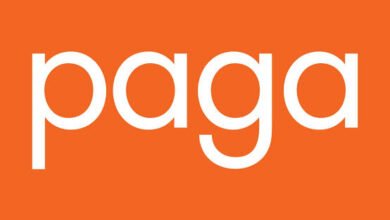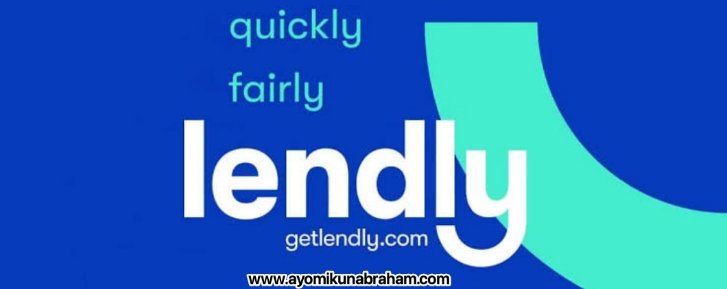How Does a Reverse Mortgage Work? (The Ultimate Guide)
How Does a Reverse Mortgage Work: Reverse Mortgage is a term that is known to be used for elderly people which is true, so what is Reverse Mortgage? It is a home loan which can only be applied for by people who are 62 and older, it allows the homeowners to borrow a loan and use their house as security or collateral.
There is a twist to this kind of loan as it can’t be paid while the homeowners are still in the house used by collateral and it can either be paid by the homeowners or heirs which is done by usually selling the house.
Note: The property’s name would still be with the homeowners during the loan duration.
Types of Reverse Mortgage Loans
The most popular type of Reserve Mortgage loan is the Home Equity Conversion Mortgage (HECM) because it is insured by the government which gives them a little more trust than the other types, so without any further ado let’s get right into it:
1. The Home Equity Conversion Mortgage (HECM):
These are the most popular types of reverse mortgage loans because they are the only ones backed by the government [The U.S. Department of Housing and Urban Development (HUD)]. This type of loan is only available to residents who are above 62 years and have their residence or who have paid part of their mortgage.
Who benefits from HECM?
HECM is very beneficial for government retirees who want to use the equity available in their homes to generate income. After you have applied for a reverse mortgage using HECM, you can receive your loan in a huge amount at once, receive it as a monthly payment, or as a line of credit.
Note: Before applying for a HECM loan you have to receive counselling from a counsellor who must be approved by the HUD. The counselling session is not free as you must pay.
Here are the things the lender will do before giving out the loan:
- The lender will underwrite the loan to ensure the borrower meets all of the government requirements.
- The borrower must sign that he/she will keep up with the expenses associated with the property such as property tax, maintenance costs, etc.
Once given the loan, no payment is expected to be made to the lender until one of these two things happens:
- The property is sold;
- The borrower dies then the mortgage is paid by the estate.
Obligations to be fulfilled before you can be able to borrow a loan using HECM
- The borrower must be 62 years old or older.
- The borrower must be the owner of the said residence.
- The property must be your principal residence.
- Be willing to maintain the property mentioned and cater for all its expenses.
- The borrower must be aware of all federal debt.
Demerits of HECM
- The borrower must pay counselling fees from a HUD-approved counsellor.
- The loan origination fee could amount to $6000.
- The interest on the loan is usually high.
- The servicing fees attached to the loan are also high.
2. Proprietary Reverse Mortgage:
This type of mortgage can be classified as the opposite of HECM as it is not guaranteed by the government and is regulated by the HUD or the Federal Housing Administration (FHA). This type of loan is offered by private lenders.
Who benefits from it?
In this type of loan, having a benefit isn’t a must as it depends on the lender who decides if you will or he will benefit from the loan, so don’t be too excited when applying.
This type of loan is usually applied for by users who couldn’t meet the requirements of receiving a loan from HECM. However, there is one similarity as both loans’ underwriting process is similar but in Proprietary Reverse Mortgage you don’t have to pay a counselling fee as it isn’t a requirement.
Note: This loan is also used by borrowers whose residence value exceeds the limit of the HECM loan.
Disadvantage of the Proprietary Reverse Mortgage
The only disadvantage of the Proprietary Reverse Mortgage is due to the private nature and the noninvolvement of government, the interest attached to the loan by the lender is always high and this can be understood because he/she will need to be compensated for the additional risk incurred by giving you the loan.
3. Single-Purpose Reverse Mortgage:
This type of loan is synonymous with the Proprietary Reverse Mortgage as both of them aren’t guaranteed and insured by the government. The only difference with this type of loan is that it is given by the local government and Non-profit organizations. This type of loan is given on the condition that it will be used for a single purpose like payment of unpaid property taxes or home repairs.
Who benefits from it?
This type of loan is used for either a project or to pay for unpaid expenses on the house. This type of loan is very peculiar as the remaining two can’t be used to fix retirement assets or pay for outstanding/ongoing expenses.
In this type of loan, the borrower doesn’t need to obtain much equity in their residence as the lender when enforcing the use of proceeds will use a title company.
Note: This type has some stringent conditions as the lender if he/she is using a Single-Purpose Reverse Mortgage will demand that the payment go directly to the payee/borrower.
Benefits of Single-Purpose Reverse Mortgage
This loan is very beneficial to the borrower as they would only need to pay a one-off expense. This type of loan doesn’t require the borrower to pay a lot of fees to access the equity, they also have access to the loan funds which doesn’t need a high-fee unsecured loan product.
Demerits of Single-Purpose Reverse Mortgage
The only demerit of this type of loan is the limited access to the use of funds. The borrower is only allowed to use the loan he got to settle the designated use and if another emergency comes up, the loan can’t be used as the terms will have to be adjusted r the borrower has to apply for a new loan.
How Does a Reverse Mortgage Work?
When using a traditional mortgage, the bank gives you a huge sum and obliges you to pay it back with interest until the loan is paid down to $0. Well, when using a Reverse Mortgage the lender gives you the payment either in a lump sum, monthly payments or a line of credit.
When using Reserve Mortgage, the amount you owe increases over each month and your home equity decreases over time. The special advantage attached to this loan is that during the loan duration, the title of your home is kept with you and you don’t need to pay the balance until you move out from that residence or die.
Over time, as the homeowner moves out he/she will have to sell the house which will be used to pay off the debt. However, if there is no equity left over on the house, the estate will take ownership of the property.
For owners who take loans that are more than the worth of the house, the difference isn’t left to the heirs to pay. Although the heirs can decide to pay off the mortgage inherited from their parents for those who want to keep the house, the only method they can use is to refinance the mortgage.
Advantages of Reverse Mortgage Loans
1. It is very helpful to secure a person’s retirement:
For residents who didn’t save a lot during their working stage or have a lot of investments but have most of their wealth built up in their homes, it is advisable to use Reverse Mortgage. Reverse Mortgage helps retirees to turn their illiquid assets into cash which can be used to pay for expenses during their retirement years.
2. It still provides the opportunity for the borrowers to live in the house:
Most retirees who are unexposed to this scheme usually sell their houses to liquefy their assets but that isn’t necessary for Reverse mortgages as the property can still be yours while you make your cash.
This scheme also helps you to downplay the potential possibility of you getting priced out of your neighbourhood if you had to move.
3. It helps to pay off your existing home loan:
Before taking a Reverse Mortgage loan, your home may not be paid off and when you have collected the loan – it can be used to pay off such existing home loan hence freeing up money to pay for other expenses.
4. No Tax Liability attached:
The IRS doesn’t consider Reverse Mortgages as an income but as a loan advance which means those funds can’t be taxed. Other retirement income such as 401 (k) or IRA is usually taxed.
5. There is still protection on your loan even if the balance exceeds the home’s value:
During cases when your home is less than the total amount owed due to the fall of home prices, there is no obligation for your heirs to repay the balance.
Disadvantages of Reverse Mortgage Loans
1. You could lose your home to foreclosure:
People who want to qualify for a Reverse Mortgage have to be able to afford their property taxes, homeowners insurance, HOA fees and other expenses attached to their home but if you can’t afford or in anytime default on their loan terms – you could lose your home to foreclosure.
2. It could impact a retiree on his/her other benefits:
A Reverse Mortgage can affect a retiree’s opportunity to qualify for benefits attached to retirees such as Medicaid or Supplemental Security Income (SSI). Before you apply for any reverse mortgage loan, ensure that you discuss with a benefits specialist to ensure that none of your entitled benefits is affected.
Other disadvantages include:
- They are complicated;
- It is not free;
- Your heirs could inherit less.
Conclusion: How Does a Reverse Mortgage Work?
To my readers, ensure that you don’t fall victim to various mortgage scams on the internet as I have extensively explained how reverse mortgage works, the types of reverse mortgages available, its merits and demerits.
If I were to recommend any type of reverse mortgage to you, I would say you go for HECM. It deals with the government hence making it more reliable and trustworthy than the rest. I hope my choice of selecting HECM doesn’t affect yours as this is a very personal topic and the factors I considered may not be what you considered.
That’s all for this article on how does a reverse mortgage work. Thanks for reading. Subscribe to notifications.










I do believe all of the ideas you’ve offered in your post. They’re very convincing and will definitely work.
Thanks for the post.
Thanks for the comment/compliment. I am also writing more of this kind.